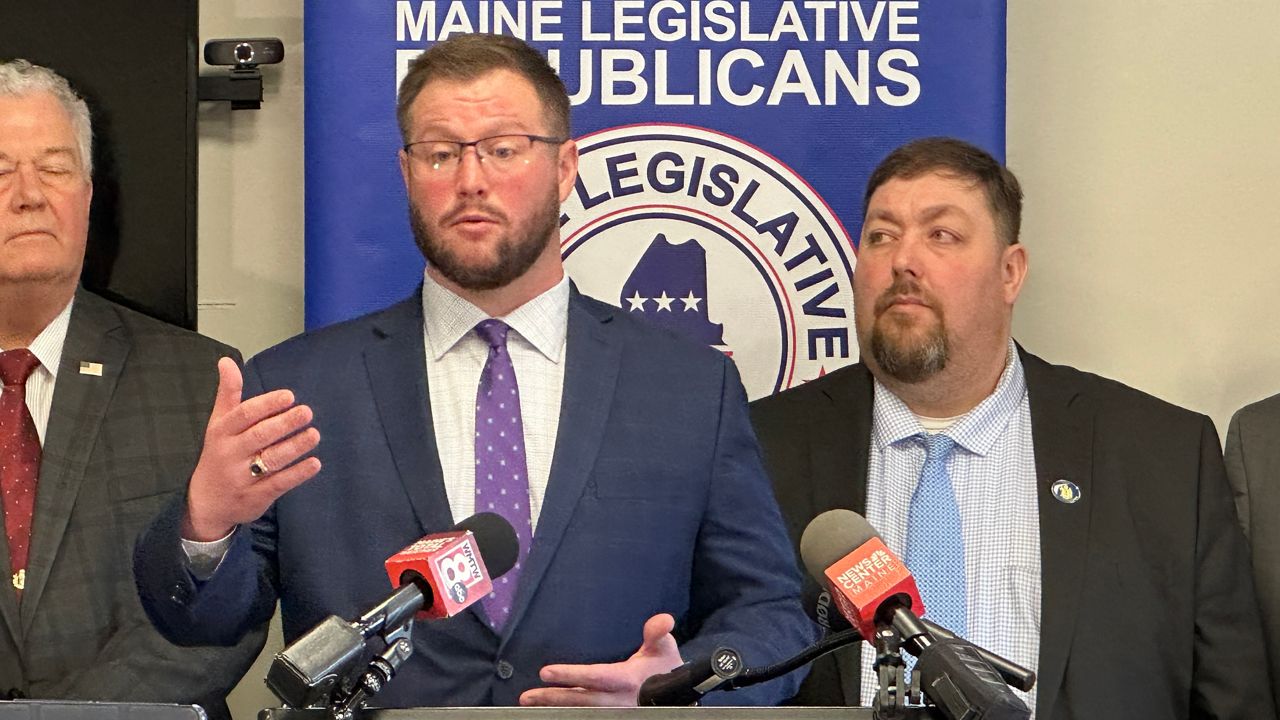Maine Republicans are calling on Gov. Janet Mills and Democrats in the Legislature to support a GOP-sponsored bill to remove gender identity from the Maine Human Rights Act.
Republicans say it’s one way to end a standoff between Mills and the Trump administration, which has given Maine another ten days to comply with federal sex discrimination law.
Federal authorities say Maine is failing to comply with Title IX because the state allows transgender girls to compete in female sports. Republicans say the state could lose millions in federal funds for failing to comply.
“Our chief executive officer, Gov. Mills, has gone to the extent of picking a fight with President Trump over the issue, a fight all Mainers will pay a debt for,” said Rep. Mike Soboleski (R-Phillips), who is sponsoring the new legislation.
Soboleski said school administrators and school board members say they cannot keep transgender girls from participating in girls’ sports because the Maine Human Rights Act lists gender identity as a protected class.
Last month, the Maine Principals’ Association made a similar argument, saying that until the change in presidential administrations, state and federal law agreed on the issue.
The MPA released a statement stating that it “remains committed to the longstanding principles laid out in Title IX.”
“Until recently, our policy aligned with both Title IX and the Maine Human Rights Act, which has been and always will be our intention,” according to the statement.
A spokesman for Mills did not respond to a request for comment, but Mills told reporters last week that she is standing against federal overreach.
She said the issue is not about transgender participation in sports but that she is fighting the Trump administration because she does not believe the president has the power to unilaterally withhold federal funds. Those funds have already been approved by Congress, and the Constitution calls for a separation of powers.
“There’s a separation of powers issue here, there’s a rule of law issue here and I abide by the rule of law, respect the rule of law, the way the laws are made by Congress and by the Legislature and the way the chief executive is required to take care that the laws be faithfully executed,” she said. “That’s fundamental.”
On Monday, the U.S. Department of Education’s Office of Civil Rights issued its final warning to Maine for “its ongoing refusal to comply with Title IX.”
The federal law prohibits discrimination based on sex.
The federal government alleges the state education department is not complying with Title IX because it is allowing transgender girls to participate in girls’ sports and is denying girls access to “intimate facilities on the basis of sex, such as female-only locker rooms and bathrooms.”
A spokeswoman for the state education department referred all questions to the Maine Office of the Attorney General. A spokeswoman there said they are not commenting on the matter.
The Monday letter gives Maine until April 11 to comply. If not, the Office of Civil Rights says it will refer the matter to the Department of Justice for enforcement.
The investigation, and several others launched by federal agencies, stems from a public confrontation between Trump and Mills. The February spat, during a meeting with governors, started with Trump warning Mills that Maine must comply with an executive order he signed banning transgender girls from girls’ sports.
When Mills said she would follow state and federal law, Trump said he would ensure that Maine did not receive federal funds unless it complied.
Mills told the president she would see him in court.
The GOP legislation to remove gender identity from the Maine Human Rights Act faces an uphill battle because Democrats control the state House and Senate.
In 2005, Maine voters added gender identity to the classes of people protected from discrimination in employment, housing and education. At the time, most of the debate focused on adding sexual orientation to the list of protected classes.
Senate Minority Trey Stewart (R-Presque Isle) said Mills could also comply with federal directives without passing new laws.
“I do think there needs to be some sort of solution here with regard to federal funding,” Stewart said. “This is not sustainable. We’re a poor state. We are heavily reliant on federal money. The governor needs to move on this.”






)



